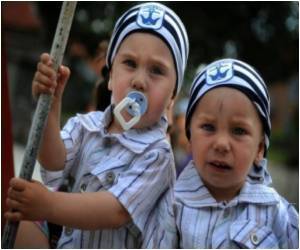
"Face recognition is an important social skill, but not all of us are equally good at it," Jia Liu, the lead researcher from Beijing Normal University, said.
According to Liu, "individuals who process faces more holistically", that is, as an integrated whole, "are better at face recognition".
To isolate holistic processing as the key to face recognition, the researchers first measured the ability of study participants, 337 male and female students, to remember whole faces, using a task in which they had to select studied faces and flowers from among unfamiliar ones.
The next two tasks measured performance in tasks that mark holistic processing. The composite-face effect (CFE) shows up when two faces are split horizontally and stuck together.
It's easier to identify the top half-face when it's misaligned with the bottom one than when the two halves are fitted smoothly together, "because our brain automatically combines them to form a new", and unfamiliar, "face".
Advertisement
The researchers also assessed participants' general intelligence.
Advertisement
"Our findings partly explains why some never forget faces, while others misrecognize their friends and relatives frequently," Liu added.
The study has been published in Psychological Science.
Source-ANI









